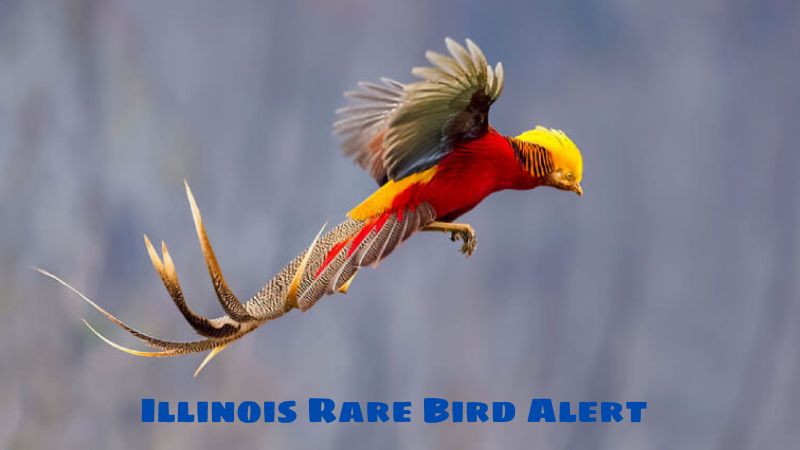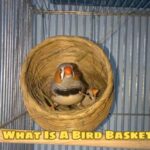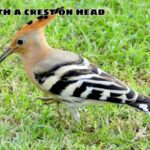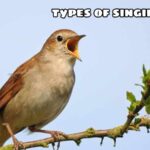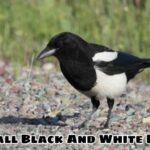Illinois, the “Heart of the Midwest”, is famous for its diverse ecosystems and is home to many rare bird species. However, warning bells are ringing as the number of rare birds here is decreasing sharply, threatening the ecological balance and biodiversity of the area.
The decline in the number of rare birds is an urgent problem that needs to be solved. If we do not act immediately, we may lose these precious birds forever. Let’s learn more about illinois rare bird alert with Exoticbirdscorner in the article below!
Illinois rare bird alert
The state of Illinois, known as the “Heart of the Midwest”, is home to many rare bird species. Famous for its diverse ecosystems, Illinois has many ideal habitats for rare birds, from vast grasslands to dense forests and wetlands.
Some typical rare bird species in Illinois include:
- White-crowned Falcon: America’s national bird, the bald-crowned peregrine falcon was once at risk of extinction but was successfully protected and can now be seen in many places in Illinois, especially along the riverbanks. Mississippi.
- Band-necked crane: The tallest crane species in North America, band-necked cranes can reach a height of up to 1.5 meters. They commonly inhabit wetland areas and are found in parts of southern Illinois.
- Red-headed Woodpecker: This beautiful woodpecker has brilliant red plumage and a distinctive tapping sound. They typically inhabit deciduous forests and are found throughout Illinois.
- Sharp-billed duck: This unique duck has a long and pointed bill, suitable for foraging in mud. They commonly inhabit wetland areas and are found in parts of northern Illinois.
Rare birds play an important role in the ecosystem, contributing to biological balance and creating diverse beauty in the Illinois environment. However, many rare bird species are facing risks such as habitat loss, environmental pollution and illegal hunting. Protecting rare birds requires the joint efforts of each individual and community. We need to raise awareness about the importance of rare birds, take measures to protect the habitat, and promote community education activities. Protecting rare birds is protecting our own living environment and contributing to building a sustainable future for future generations.
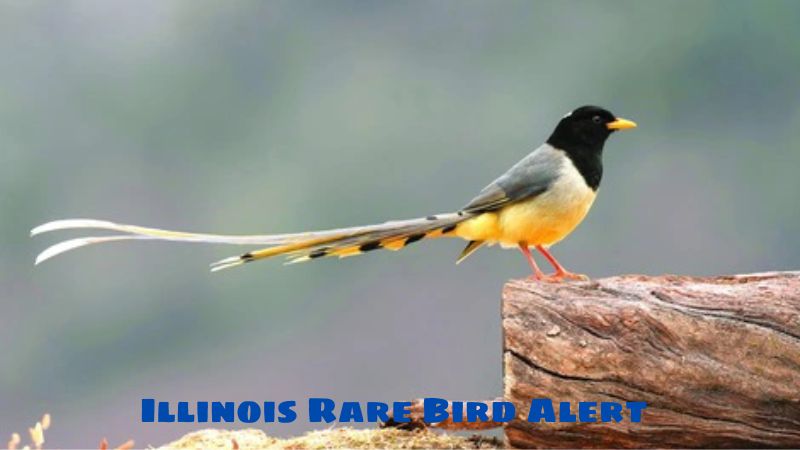
Reasons for the decline in the number of rare birds in Illinois
The number of rare birds in Illinois is decreasing sharply due to many reasons, including:
Environmental conditions and climate change:
- Climate change: Rising sea levels, storms, floods and droughts due to climate change threaten the habitat and food sources of rare birds, making it difficult for them to survive and migrate.
- Environmental pollution: Industrial and agricultural activities and the use of toxic chemicals have contaminated water sources and food for rare birds, leading to poisoning and dangerous diseases.
- Pesticide use: The widespread use of pesticides in agriculture can harm rare birds and their food sources.
Habitat loss and human encroachment:
- Loss of habitat: Due to urban development, resource exploitation and climate change, rare birds are losing familiar habitats such as forests, swamps and grasslands.
- Human encroachment: Human activities such as hunting, tourism and infrastructure construction can disturb the habitat of rare birds and scare them away.
- Competition with other bird species: Some invasive alien bird species can compete with rare birds for food and habitat, affecting their numbers.
The decline in rare bird populations is a matter of concern, affecting the ecological balance and biodiversity of Illinois. Protecting rare birds requires the joint efforts of each individual, organization and government. We need to raise awareness about the importance of rare birds, take measures to protect the habitat, and promote community education activities. Protecting rare birds is protecting our own living environment and contributing to building a sustainable future for future generations.
The importance of preserving rare birds in Illinois
Rare birds play an important role in Illinois’ local ecosystems, contributing to biological balance and providing many benefits to communities and the environment.
The role of rare birds in the ecosystem:
- Controls insect populations: Many rare bird species eat insects, helping to control insect populations that damage plants and crops.
- Seed dispersal: Some rare bird species help disperse tree seeds, contributing to forest regeneration and environmental protection.
- Food for other animals: Rare birds are an important food source for other wildlife such as foxes, snakes and owls.
Benefits that protecting rare birds brings to the community and the environment:
- Ecotourism: Protecting rare birds contributes to promoting ecotourism, attracting tourists to Illinois and generating income for local communities.
- Environmental education: Rare bird conservation helps raise community awareness about the importance of protecting the environment and biodiversity.
- Scientific research: Researching rare birds helps us better understand the ecosystem and their role in the environment.
Protecting rare birds is the shared responsibility of every individual, organization and government. We need to join hands to contribute to protecting the habitat of rare birds, implementing community education measures and promoting scientific research activities. Protecting rare birds is protecting our own living environment and contributing to building a sustainable future for future generations.
Challenges and solutions in rare bird conservation in Illinois
Rare bird conservation in Illinois faces many major challenges, including:
Challenges:
- Loss of habitat: Due to urban development, resource exploitation and climate change, rare birds are losing familiar habitats such as forests, swamps and grasslands.
- Environmental pollution: Industrial and agricultural activities and the use of toxic chemicals have contaminated water sources and food for rare birds, leading to poisoning and dangerous diseases.
- Illegal hunting: Although hunting rare birds is illegal, there are still some people who hunt them illegally for meat or feathers.
- Climate change: Rising sea levels, storms, floods and droughts due to climate change threaten the habitat and food sources of rare birds, making it difficult for them to survive and migrate.
Solutions and directions:
- Protecting the habitat: It is necessary to take measures to protect the habitat of rare birds, such as establishing nature reserves, limiting resource exploitation and controlling environmental pollution.
- Raising awareness: It is necessary to raise community awareness about the importance of preserving rare birds through education and communication activities.
- Law enforcement: Law enforcement needs to be strengthened to prevent illegal hunting of rare birds.
- Support scientific research: It is necessary to support scientific research activities on rare birds to better understand them and find more effective conservation measures.
Encourage ecotourism: Responsible ecotourism should be encouraged to generate income for local communities and promote the conservation of rare birds.
Preserving rare birds is a difficult but extremely important task. It takes everyone’s contribution to protect these rare birds and build a sustainable future for Illinois’ environment.
Epilogue
Rare birds are an important part of the Illinois ecosystem, providing many benefits to communities and the environment. However, the number of rare birds is decreasing sharply due to many reasons such as habitat loss, environmental pollution and illegal hunting. The conservation of rare birds is the shared responsibility of each individual, organization and government.

